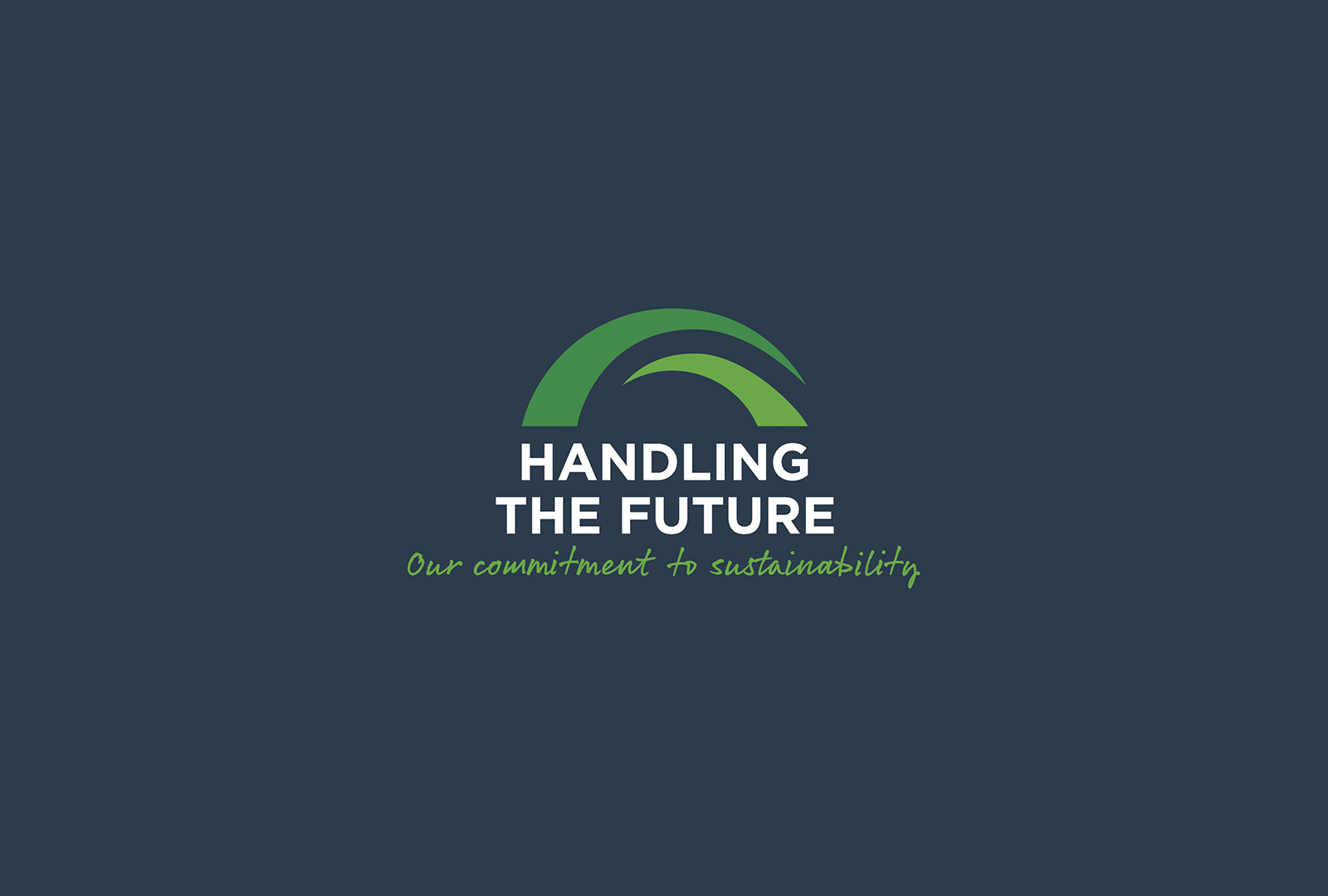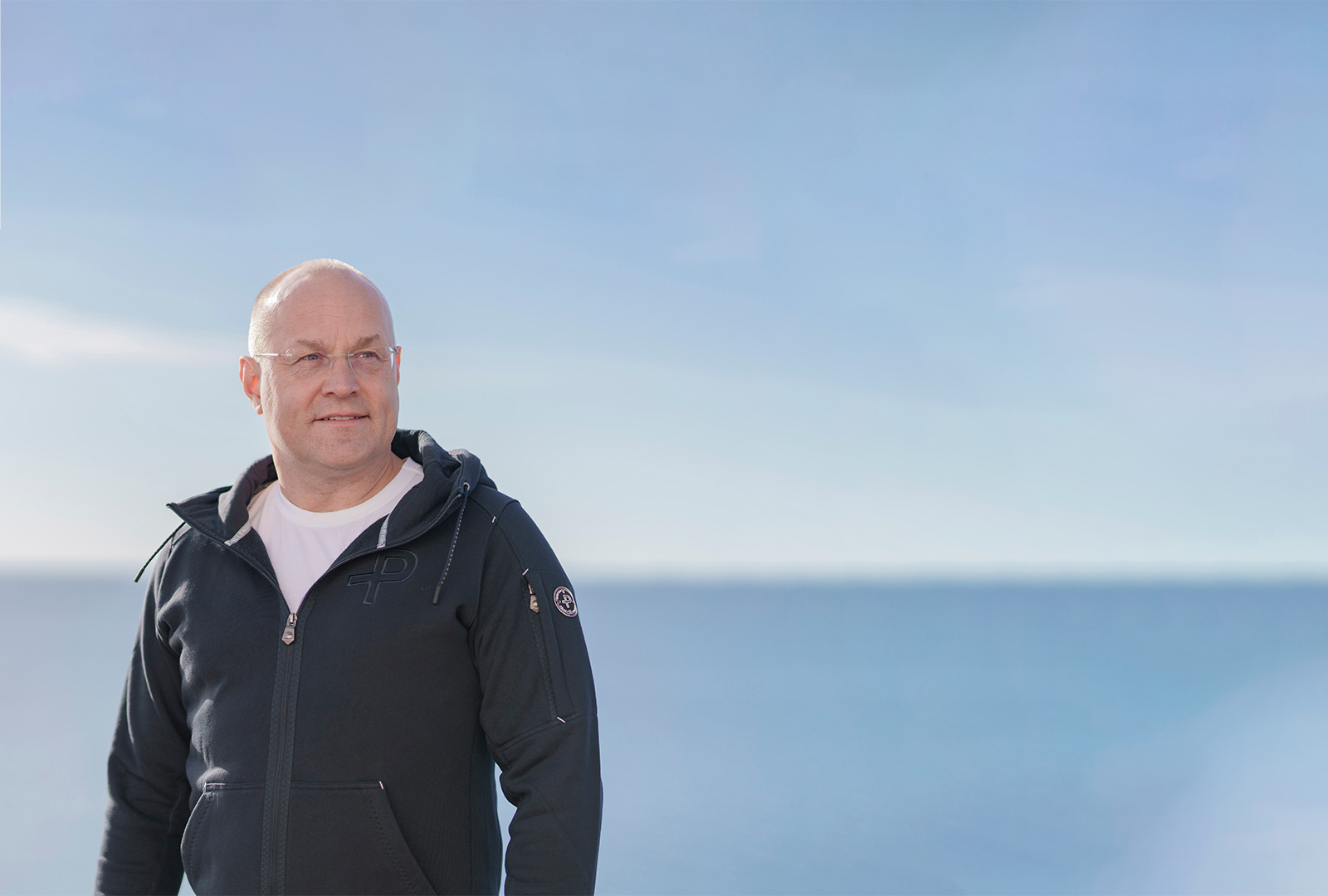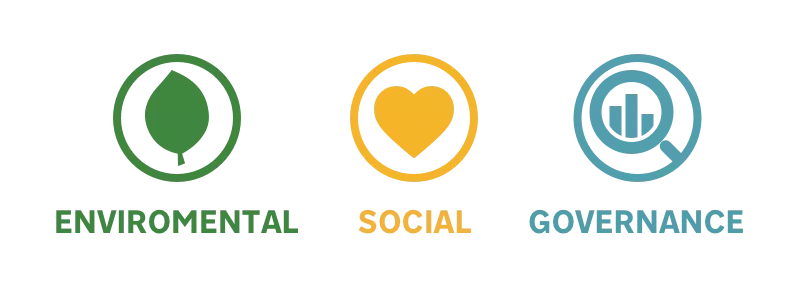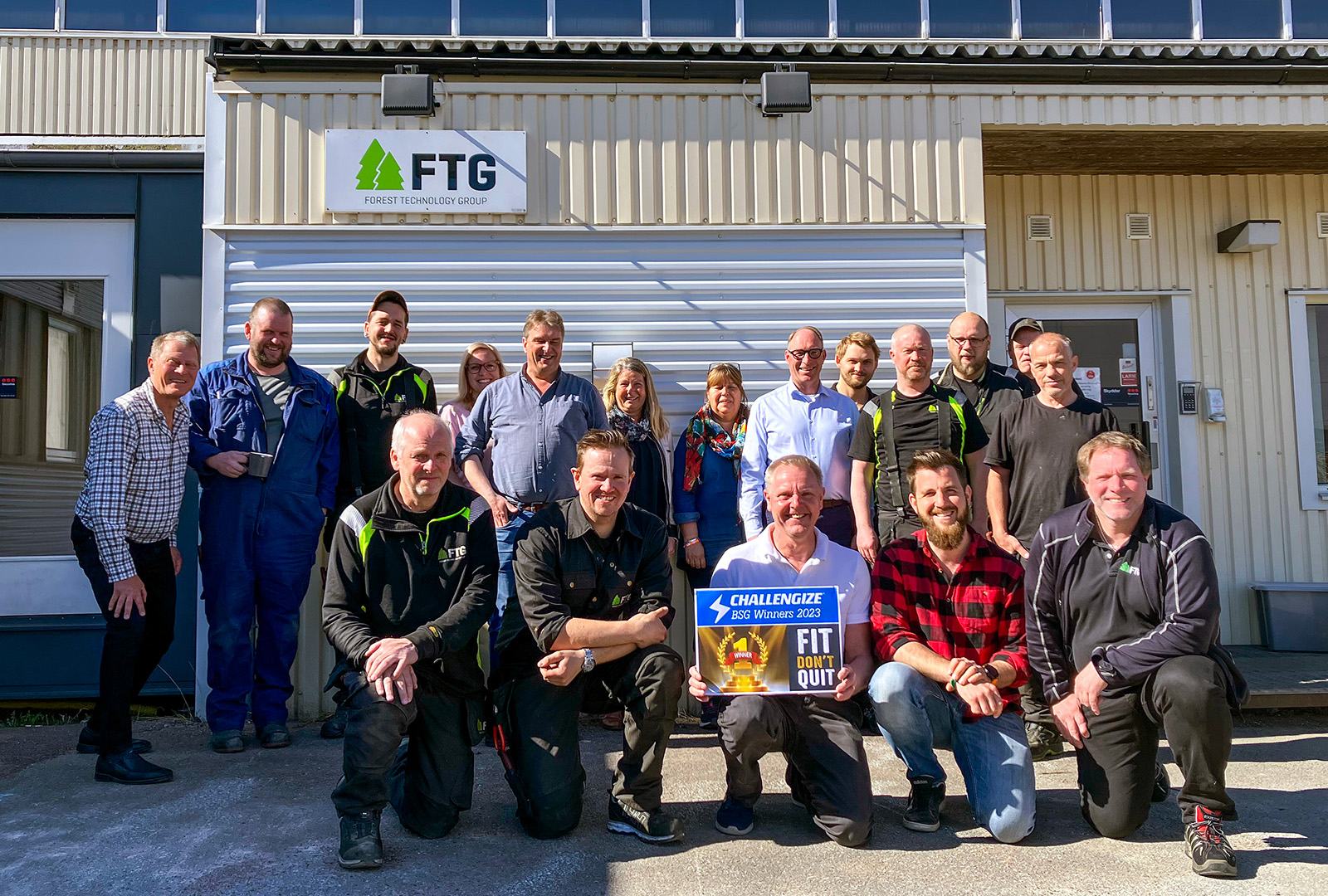
Sustainability highlights and report 2023
Sustainability highlights and report 2023
Handling the future
A dedicated line o communication, which includes our sustainability commitment logo, represents our ambitions. For us, ‘handling the future’ means that we will do what we can, and what it takes now, to drive a more sustainable worlds from a social, environmental and governance perspective, preserving it for future generations.
Handling is a key word in our business. Our equipment handles material transfers in ports, forests and industrial settings and facilities and is part of our sustainability messaging as well. It has been embraced within the Group and is widely visible, reminding us all that, through our 2030 targets and our sustainability efforts in general, the future is in our hands.
This journey is not one we want to do, or can do alone; we hope that as many of our customers, suppliers, business partners and other stakeholders as possible join us in making sure that, together, we handle the future.


CSRD is designed to modernise and strengthen the rules around sustainability reporting - we welcome this.Peter Jonsson, CEO, Bruks Siwertell Group AB
CSRD is designed to modernise and strengthen the rules around sustainability reporting - we welcome this.Peter Jonsson, CEO, Bruks Siwertell Group AB
Clear agendas drive positive change
Our sustainability work was intensified in 2022, and throughout 2023 we deepened our analysis and calculations. It has been an eventful and intense 24 months, with global circumstances still presenting both with challenges and opportunities.
We asked our CEO, Peter Jonsson, to highlight his top three progress points over the past twelve months:

Sustainable development goals and UN global compact
The United Nation’s Sustainable Development Goals (SDGs) are a universal attempt to achieve a sustainable future and promote equality, human rights, and justice for all by 2030. The SDGs are a collection of 17 interlinked goals designed to guide reflection and action on the most critical challenges, and opportunities facing humanity and the natural world.
To move from awareness to action, the UN Global Compact offers participants an extensive toolbox including platforms, hubs and resources, that help businesses take action to achieve the SDGs.


At this stage in our sustainability journey with suppliers, their attitude towards scope 3 information requests is the most important factor.Jens Lindell-Frantz, Purchasing Director, Bruks Siwertell AB
At this stage in our sustainability journey with suppliers, their attitude towards scope 3 information requests is the most important factor.Jens Lindell-Frantz, Purchasing Director, Bruks Siwertell AB
Our value chain
Our goals and local ownership
Our sustainability team was established in 2021 and is led by the company’s Chief Strategy Officer, who supports the units’ local initiatives and runs and coordinates Group-wide activities such as training, climate calculations and the mapping of significant sustainability issues. The exchange of knowledge between the participants in the sustainability team drives the Group’s entire sustainability work. Each company within Bruks Siwertell Group has formulated an individual action plan to ensure its feasibility, establishment and a sense of ownership.
Bruks siwertell group’s sustainability goals are assessed from an environmental, social, and governance (ESG) perspective, with each initiative falling into one or more of these categories.


Environmental, social, and governance
Environmental, social, and governance (ESG) is a framework designed to be embedded into an organization's strategy, that considers the needs and ways in which to generate value for all organizational stakeholders.
Environmental
Environmental factors consider an organization's overall impact on the environment and the potential risks and opportunities presented as a result of environmental issues. Examples include:
- Energy consumption and efficiency
- Greenhouse gas (GHG) emissions (direct or indirect)
- Waste and recycling management
- Air and water pollution
- Biodiversity loss
- Deforestation
- Natural resource depletion
Social
Social factors include how an organization performs in relation to its internal and external stakeholders, including employees, suppliers, customers, business partners, and community members. Examples include:
- Fair treatment of employees, customers, and suppliers
- Diversity, equity and inclusion (DEI) programs
- Employee experience and engagement
- Workplace health and safety
- Data protection and privacy policies
- Community relations and engagement
- Support for human rights and labor standards
Governance
Governance factors examine how an organization polices itself, focusing on internal controls and practices to maintain compliance with regulations, industry best practices and corporate policies. Examples include:
- Company leadership and management
- Board composition, including its diversity and structure
- Executive compensation policies
- Financial transparency and business integrity
- Regulatory compliance and risk management
- Ethical business practices
- Whistleblower programs
Our 2030 ambitions
The outcome of our materiality analysis has resulted in challenging but clear focus areas and ambitions for 2030: Bruks Siwertell Group wants to set the sustainability standard for the industries that we serve and with ambitious targets, make a positive impact on surrounding ecosystems.
Environmental
Focus areas
- Product development
- Reduce and limit CO₂ and greenhouse gas emissions
- Reduce energy use
- Reduce waste
Measurable goals
- 50% reduction in CO₂ emissions
- 90% circularity of products
- Zero waste in our office units
- 100% renewable energy
Social
Focus areas
- Health and safety
- Employee satisfaction
- Diversity and inclusion
Measurable goals
- Zero workplace accidents
- 30 eNPS score
- 30% female managers
Governance
Focus areas
- Anti-corruption
- Supply chain management
- Management systems
Measurable goals
- 100% compliance with Codes of Conduct for both suppliers and customers
- 100% of work processes updated and improved

The benefits of enclosed conveying are many: spillage and material losses are minimized, as well as the need for cleaning, resulting in a safer working environment with less pollution to nearby surroundings.Jonas Andersson, Technical Director, Bruks Siwertell AB
The benefits of enclosed conveying are many: spillage and material losses are minimized, as well as the need for cleaning, resulting in a safer working environment with less pollution to nearby surroundings.Jonas Andersson, Technical Director, Bruks Siwertell AB
Sustainability cases
Bruks Siwertell Group is committed to reaching its 2030 targets, and will continuously communicate to its stakeholders how these targets will be met and what is achieved. This will be done through the publication of sustainability cases that detail different initiatives within the Group, including the relevant ESG focus areas.
Below is a selection of the cases from 2023.
-
Bruks Siwertell starts its renewable energy switch
-
Health challenge initiative boosts activity levels and teamwork
-
Beneath the veneer are sustainability and profitability benefits
-
ISO 14001 environmental management system implemented in Bäckefors
-
Group-wide waste reduction strategies reveal positive results


 Bruks-Siwertell
Bruks-Siwertell